
The Enchanting Waters of Mariager Fjord
Mariager Fjord, often called Denmark's most beautiful fjord, stretches for 35 kilometers from the town of Hobro to the harbor in Mariager. Surrounded by lush green hills and charming villages, this fjord offers a perfect blend of nature, history, and culture. As you explore the area, you'll discover an array of activities ranging from hiking and cycling to sailing and fishing. The tranquil waters and scenic landscapes make it an ideal spot for relaxation and adventure alike. The town of Mariager, also known as the 'City of Roses,' is a must-visit. Stroll through its narrow cobblestone streets, adorned with rose bushes, and admire the well-preserved half-timbered houses. The Mariager Salt Center, located in the town, provides a fascinating insight into the history of salt production in the region. Don't miss the chance to take a dip in the salt baths, said to have therapeutic properties. For nature enthusiasts, the surrounding countryside offers numerous trails with breathtaking views of the fjord. The Bramslev Bakker hills are particularly popular for their panoramic vistas and rich flora and fauna. Whether you choose to explore by foot, bike, or boat, Mariager Fjord promises an unforgettable experience in the heart of Denmark's picturesque landscape.
Local tips in Mariager Fjord
- Visit during summer to enjoy the best weather and a variety of outdoor activities.
- Take a guided boat tour to fully appreciate the beauty of the fjord and learn about its history.
- Bring comfortable walking shoes for exploring the cobblestone streets of Mariager and nearby hiking trails.
- Try local seafood at one of the quaint restaurants along the fjord.
- Check out the local festivals and events, such as the annual Mariager Fjord Jazz Festival.
The Enchanting Waters of Mariager Fjord
Mariager Fjord, often called Denmark's most beautiful fjord, stretches for 35 kilometers from the town of Hobro to the harbor in Mariager. Surrounded by lush green hills and charming villages, this fjord offers a perfect blend of nature, history, and culture. As you explore the area, you'll discover an array of activities ranging from hiking and cycling to sailing and fishing. The tranquil waters and scenic landscapes make it an ideal spot for relaxation and adventure alike. The town of Mariager, also known as the 'City of Roses,' is a must-visit. Stroll through its narrow cobblestone streets, adorned with rose bushes, and admire the well-preserved half-timbered houses. The Mariager Salt Center, located in the town, provides a fascinating insight into the history of salt production in the region. Don't miss the chance to take a dip in the salt baths, said to have therapeutic properties. For nature enthusiasts, the surrounding countryside offers numerous trails with breathtaking views of the fjord. The Bramslev Bakker hills are particularly popular for their panoramic vistas and rich flora and fauna. Whether you choose to explore by foot, bike, or boat, Mariager Fjord promises an unforgettable experience in the heart of Denmark's picturesque landscape.
When is the best time to go to Mariager Fjord?
Iconic landmarks you can’t miss
Rebild National Park
Denmark's historic heathland and forest wilderness where Danish-American heritage meets pristine nature.
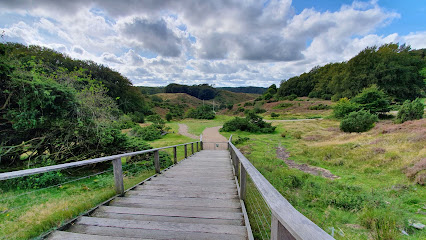
Hotel BramslevGaard
Experience tranquility and history at Hotel BramslevGaard, nestled in the scenic Bramslev Bakker by Mariager Fjord, offering gourmet dining, spa retreats, and easy access to Northern Jutland's natural wonders.
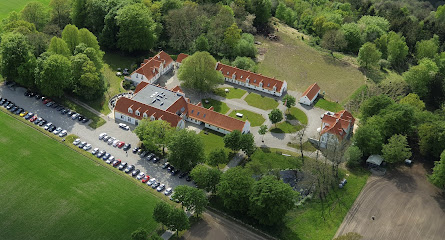
Hotel Postgaarden Mariager
Experience historic Danish charm and modern comfort at Hotel Postgaarden Mariager, nestled in the heart of the 'City of Roses' with easy access to Mariager Fjord's natural beauty.

Abbey Mill
Medieval monastery and paper mill heritage amid Denmark's largest lake and pristine forests.
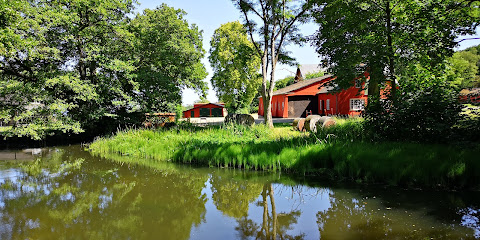
Mariager Church
A towering former abbey church above Mariager Fjord, where Gothic brickwork, noble tombs and a distinctive Aubertin organ keep centuries of faith and history alive.
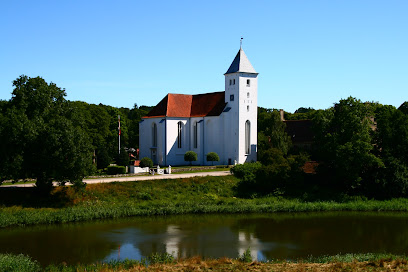
Mariager Lystbådehavn
Denmark's most beautiful fjord meets a thriving sailing community in this welcoming maritime harbor.
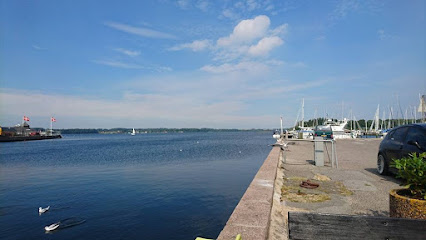
Hobro Lystbådehavn
Denmark's premier fjord marina with historic charm and modern comfort.
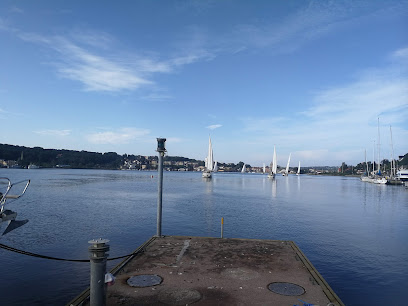
Kings Hill | Megalithic tomb
Explore a 5,000-year-old Stone Age passage grave and step inside one of Denmark's finest megalithic monuments.
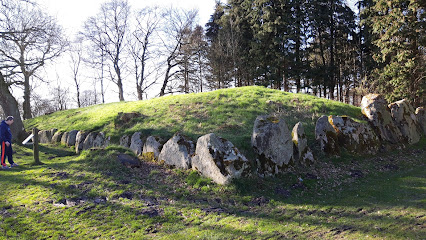
Kongsdal Havn
Modern marina sheltered in Mariager Fjord, where contemporary facilities meet Denmark's maritime heritage.
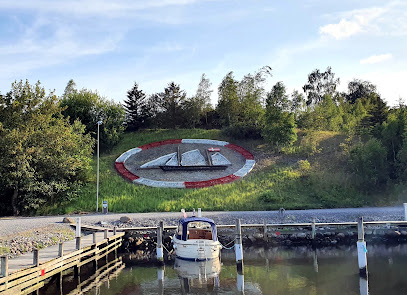
Mariager Kirke
A lofty Bridgettine abbey church turned parish landmark, where Gothic stone, noble tombs and organ music tell Mariager’s story above the fjord.
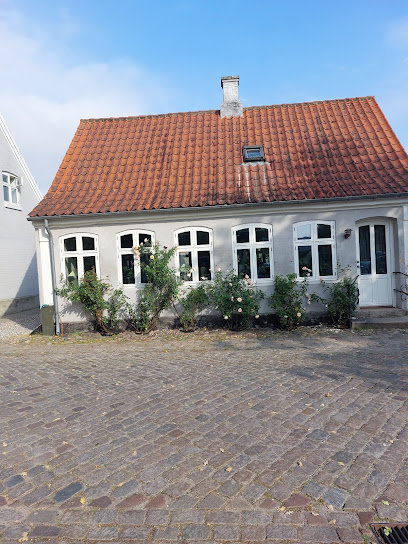
Kongsdal Fyrtårn
A retired North Sea lighthouse reborn as the red‑and‑white landmark of tranquil Kongsdal Marina on the scenic shores of Mariager Fjord.
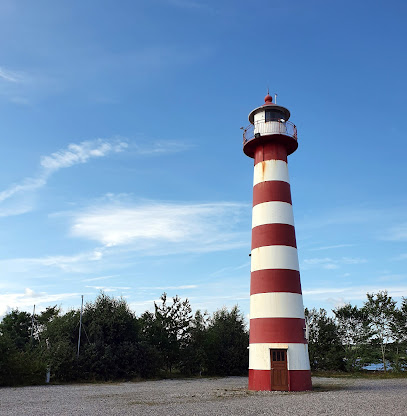
Torvekonen
A modest bronze market woman and fountain on Hobro’s main square, Torvekonen quietly celebrates the town’s trading roots and everyday life at Store Torv.
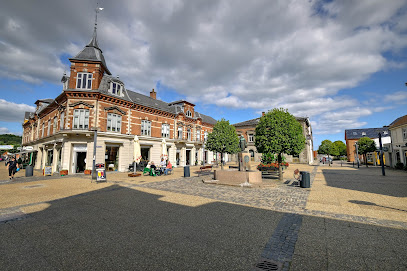
Befrielsessten i Assens
A modest liberation stone in historic Mariager, offering a quiet green corner to reflect on Denmark’s World War II occupation and the joy of 1945.
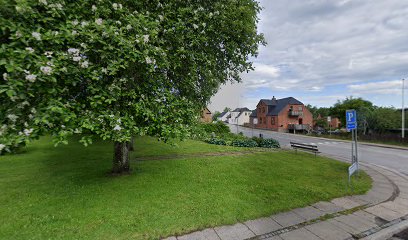
Unmissable attractions to see
Rubjerg Knude
A lone lighthouse in a moving sea of sand, Rubjerg Knude is where Denmark’s wild North Sea coast reveals the raw power of wind, dunes and erosion.
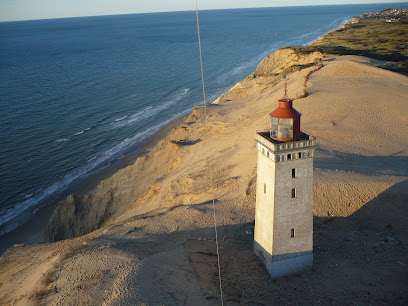
Memphis Mansion
Europe's premier Elvis tribute—a Graceland-inspired mansion celebrating the King's legacy through immersive exhibits, themed dining, and 24/7 music.
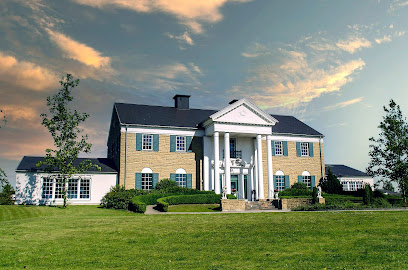
Råbjerg Mile
Northern Europe’s largest migrating dune, Råbjerg Mile is a wandering mountain of sand offering big‑sky views, barefoot climbs and a rare living desert in Denmark.
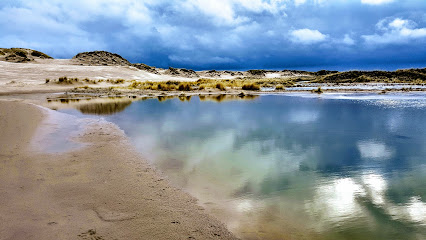
Mønsted Kalkgruber
Descend into the world’s largest limestone mine, where cool tunnels, underground lakes, bats and historic lime works create a uniquely atmospheric Danish adventure.
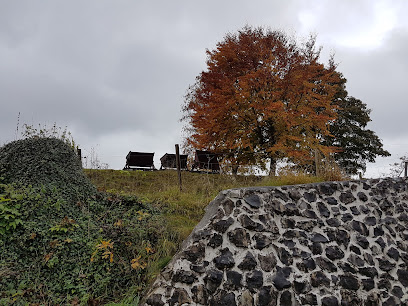
Worldmap at Klejtrup Lake
Walk the world in an afternoon on a lakeside, stone-and-grass atlas where continents, flags and family-friendly fun turn geography into a playful countryside escape.
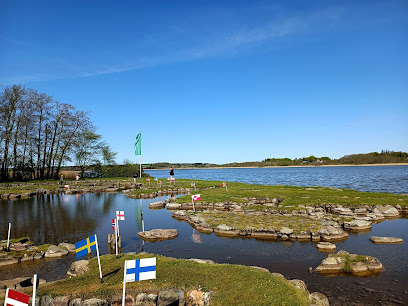
Fyrkat Viking Museum
Walk the grassy ramparts of Harald Bluetooth’s UNESCO‑listed ring fortress, step into reconstructed longhouses and meet the Viking world up close at Fyrkat.
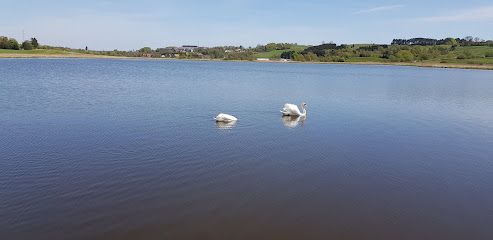
Museum Jorn, Silkeborg
Scandinavia's premier modern art museum celebrating experimental creativity on the banks of the Gudenåen river.
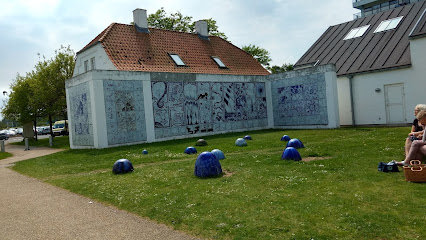
Saltcentret
Denmark's salt heritage comes alive through interactive exhibits, therapeutic pools, and family adventures on the Mariager Fjord.
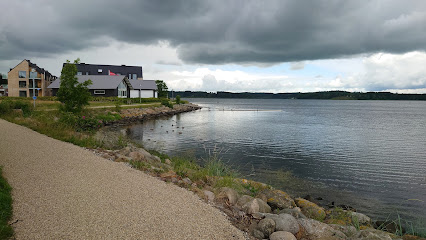
Koldkrigsmuseet REGAN Vest
A once-secret government bunker buried beneath a North Jutland chalk hill, now a fully intact Cold War museum with villa, exhibitions and forest setting.
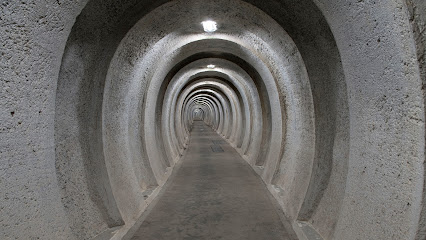
Hotel Amerika
Scandinavian forest hotel near Hobro combining woodland calm, thoughtful gastronomy and well-equipped conference facilities on the edge of Mariager Fjord.

Himmelbjerget
Iconic Danish “mountain” above the Silkeborg lakes, blending sweeping forest-and-lake views with constitutional history, forest trails and classic excursion life.
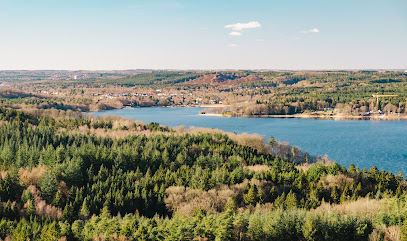
Mariager Camping
Award-winning fjord-side camping where Nordic nature meets charming heritage town life.
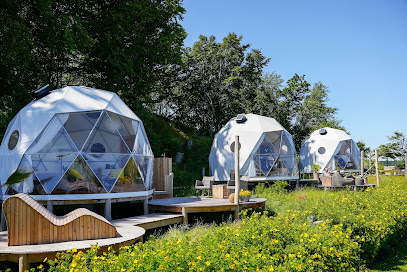
Hadsund Animal Garden
Free, open-all-day animal park on Hadsund’s wooded edge, where fallow deer and goats roam spacious enclosures and families enjoy calm, close-up encounters with nature.
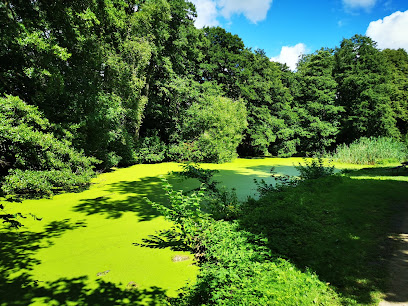
Rosenhaven
An intimate rose garden in the heart of Mariager, where hundreds of varieties, church spires and cobbled streets meet in a quietly fragrant city retreat.
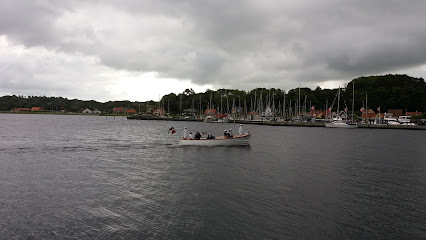
Randers Kunstmuseum
Compact yet ambitious, Randers Kunstmuseum weaves two centuries of Danish art into a bright, central-city gallery on the upper floor of Randers’ Kulturhuset.
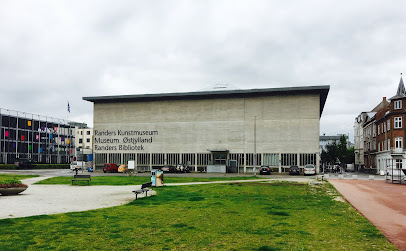
Essential places to dine
davinci RISTORANTE
Waterfront Italian dining on Mariager Fjord, blending classic pasta, pizza and seafood buffets with bright fjordview rooms and a lively, welcoming atmosphere.
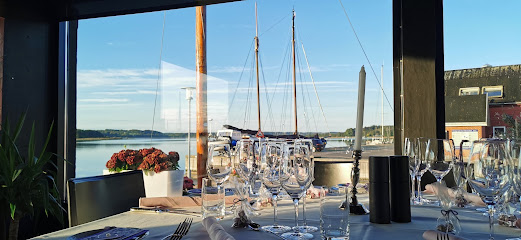
Havnens Grill & Pølsebod
Casual waterfront grill serving Danish classics with fjord views and motorcycle tradition.
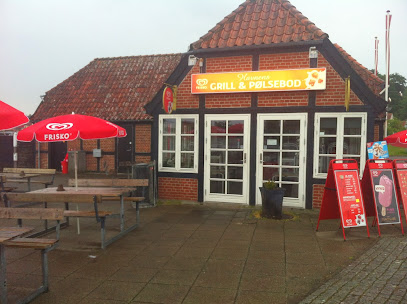
Færgekroen Hadsund
Classic Danish inn and restaurant by the Mariager Fjord, blending hearty kromad, Nordic flavors and simple rooms with wide-reaching views over the water.
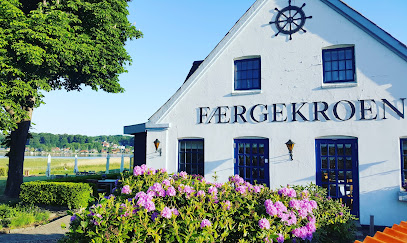
Hotel Postgaarden Mariager
Historic inn and brasserie on Mariager’s cobbled main square, blending 18th‑century charm, hearty Danish cuisine, and easy access to the rose‑clad old town and fjord.

Vaffelbageren i Mariager
Homemade ice cream and warm waffle cones on the cobbled main square of Denmark’s rose-scented fjord town, a sweet pause in the heart of historic Mariager.
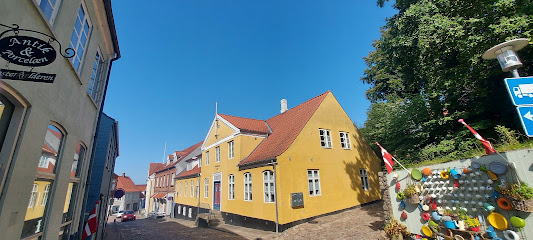
Restaurant Bies Bryghus
Historic Hobro brewery-restaurant serving classic Danish dishes with a modern twist in a warm, brick-and-beam setting on the town’s central street.
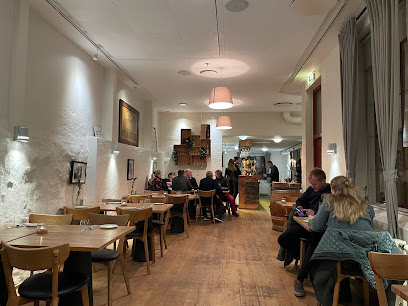
Restaurant Bramslev Bakker
Countryside Danish cooking with sweeping fjord views, where Bramslev Bakker’s rolling hills meet a relaxed, modern restaurant above Mariager Fjord.
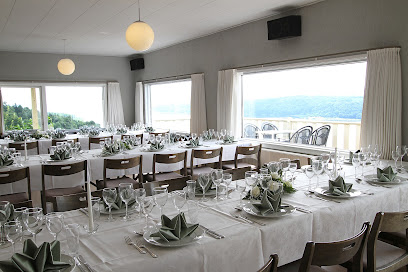
Jægerhuset
Rustic forest-side restaurant at Als Odde, serving generous traditional Danish comfort food in a nostalgic hunting-lodge atmosphere near the Mariager Fjord.
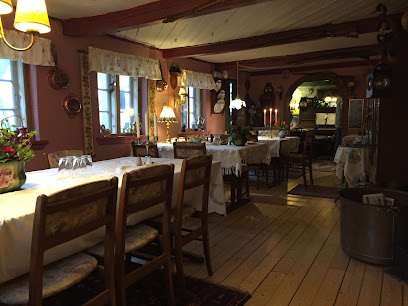
Landgangen
Homely Danish comfort food and generous plates served with wide-open views over Mariager Fjord on the quiet edge of this charming North Jutland town.
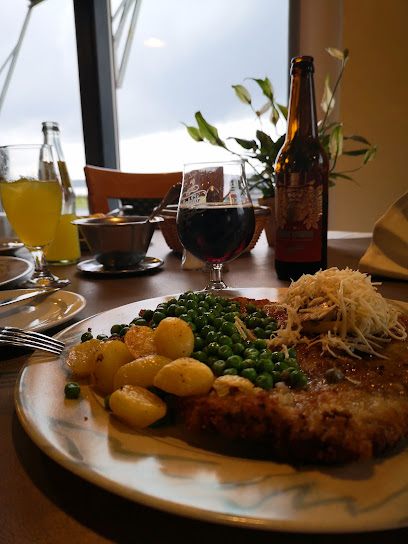
A'porta
Unpretentious Danish cooking, a lively bodega-style bar and simple rooms under one roof in the old fjord town of Mariager.
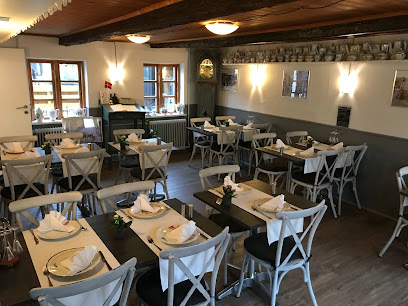
Torve Pizza Mariager v/Kenan Atas
Casual, central pizzeria and grillhouse on Mariager’s main square, serving generous, affordable comfort food to locals and visitors from afternoon through evening.
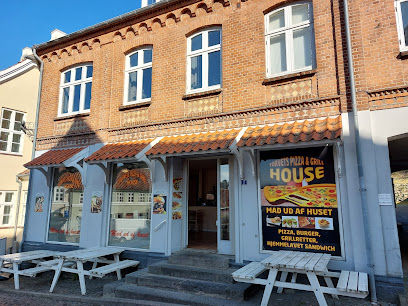
Cafe Fyret Kongsdal
Unpretentious harbour café on the quay at Kongsdal Havn, serving simple, good‑value meals and ice creams with wide‑open views over Mariager Fjord.
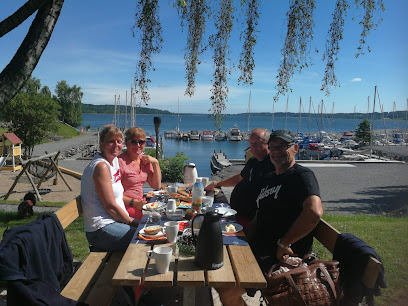
Matios Det Italienske Spisehus
Cosy Italian trattoria-style dining on Hobro’s central square, serving generous pizzas, pasta and classic desserts in a warm, candlelit atmosphere.
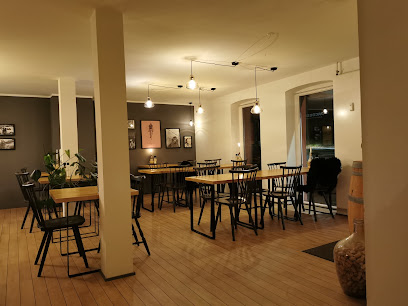
Esja Bistro
Casual Nordic comfort food with Icelandic flavours, served in a cosy bistro on Hobro’s Adelgade where North Atlantic ingredients meet relaxed Danish dining.
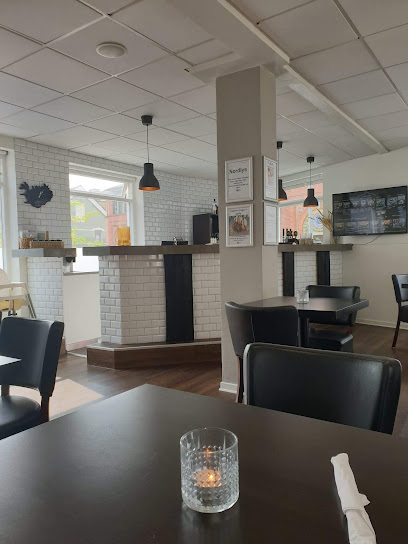
Mariager Bistro & Konditori
Casual harborfront bistro and konditori in Mariager, serving unfussy Danish café dishes and cakes just steps from the town’s quiet fjord marina.
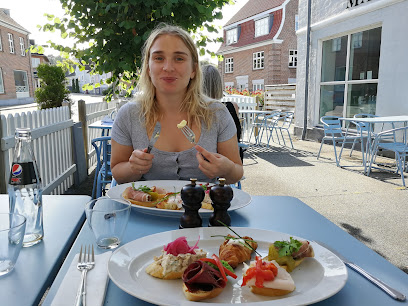
Markets, malls and hidden boutiques
REMA 1000
Mariager’s handy REMA 1000 on Gl. Hobrovej is a no‑frills discount supermarket, perfect for stocking up on groceries, snacks and picnic supplies near the historic town.
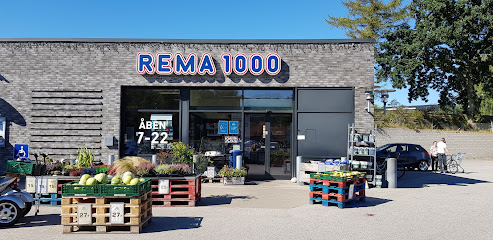
SuperBrugsen
Modern cooperative supermarket and deli hub in small‑town Mariager, ideal for stocking up on Danish groceries, picnic supplies and prepared local dishes every day.
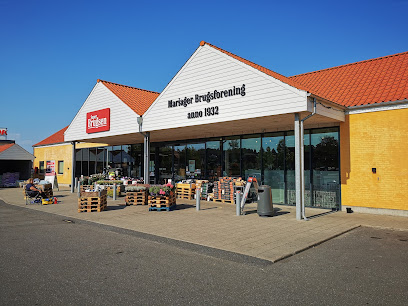
Din Lokale Outlet - Mariager
No-frills outlet on the edge of Mariager, gathering discounted fashion, basics and beauty for the whole family into a single, value-focused shopping stop.
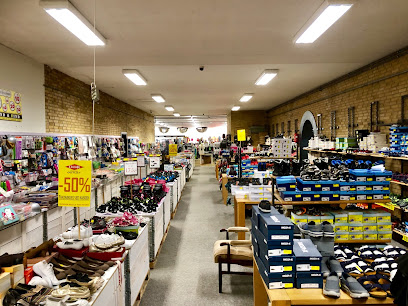
Mariager Slagterforretning
Classic Danish butcher shop by Mariager’s harbour, offering house-made specialties, fresh cuts and deli favourites ideal for picnics, grilling and cosy self-catered meals.
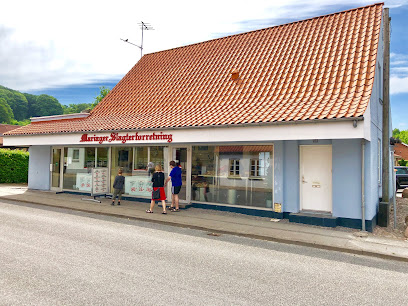
Kirkepladsens Blomster Mariager ApS
Century-old florist crafting premium arrangements for weddings, celebrations, and heartfelt moments.
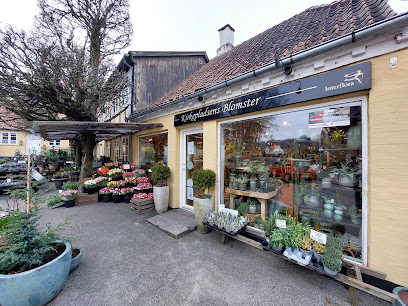
Folkekirkens Nødhjælp Genbrug
Cosy waterfront charity shop in Mariager, where curated second-hand finds, local community and global relief work meet under ét genbrugstag.
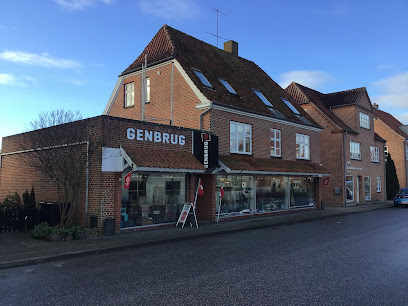
Klosterkaelderen.dk Antiques & Porcelain
Denmark's premier destination for authentic Danish and European antique ceramics and porcelain.
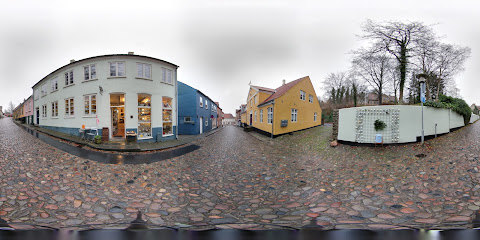
Helga Winther Smykkedesigner
Handcrafted jewelry artistry in the heart of Mariager, where bespoke designs meet timeless elegance.
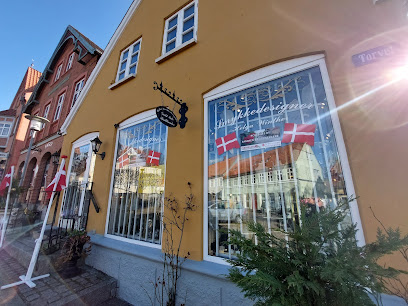
Strikkehjørnet Mariager
A cosy yarn haven in Mariager’s old town, where shelves of colourful wool, friendly advice and Nordic knitting inspiration create a perfect hygge-filled pause.
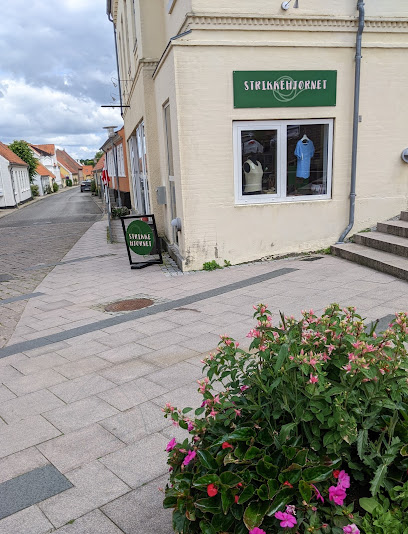
Mariager Boghandel
Cosy village bookshop and service hub in the heart of Mariager, combining books, gifts, toys and practical everyday services in one welcoming stop.
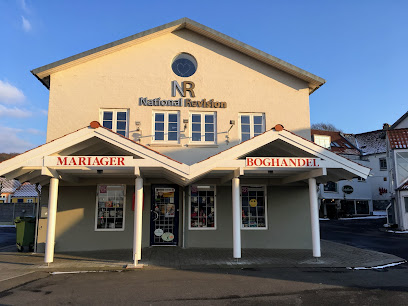
Vinspecialisten Mariager
Intimate specialist wine shop in the heart of Mariager, pairing personal advice with carefully chosen bottles, fine spirits and gift-ready treats for any occasion.
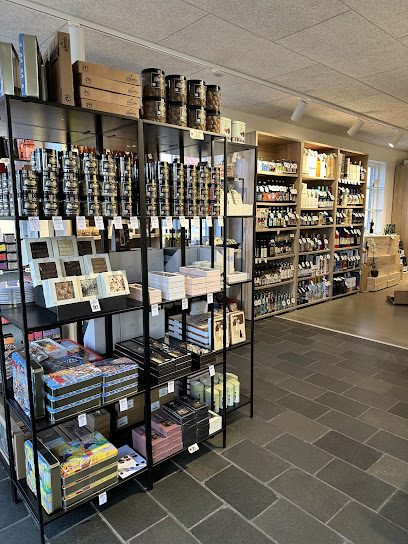
Jørgensen Sko
A long-standing local shoe shop and cobbler in Mariager, offering practical footwear, repairs and traditional service on cosy Østergade near the historic town centre.
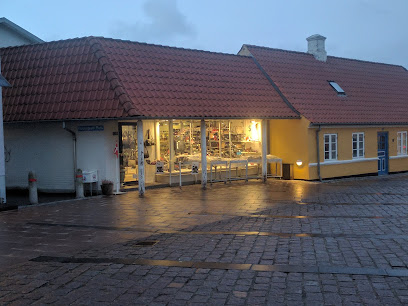
Diva
Curated women's fashion in the heart of historic Mariager's charming town center.
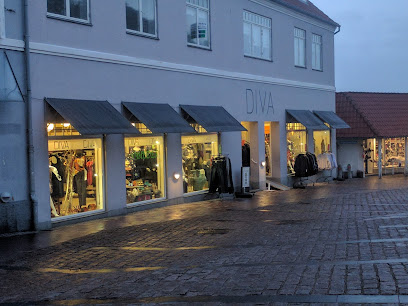
Klæd Dig - Mariager
Cosy, owner-run fashion boutique on Østergade in Mariager, offering curated Scandinavian-style womenswear in a relaxed, personal and distinctly local setting.
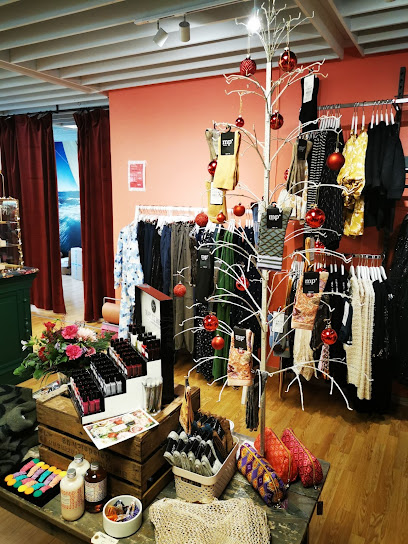
SKAGEN MO
Contemporary fashion boutique in the heart of charming Mariager, East Jutland's cultural gem.
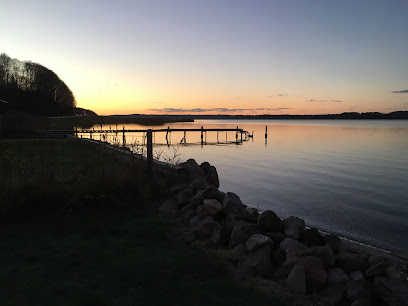
Essential bars & hidden hideouts
Havnens Grill & Pølsebod
Savor classic Danish comfort food and laid-back maritime vibes at Havnens Grill & Pølsebod, Mariager Fjord’s iconic waterfront grill stop.

Hotel Postgaarden Mariager
Step into Danish history and hospitality in the heart of Mariager’s flower-filled square, with authentic cuisine, cozy rooms, and direct access to the fjord’s natural beauty.

Landgangen
Landgangen offers traditional Danish cuisine with sweeping fjord views, making it a must-visit stop for food and scenery lovers in Mariager, Denmark.

A'porta
Experience traditional Danish cuisine in the heart of Mariager at A'Porta, a cozy pub and wine bar known for its authentic smørrebrød and warm hospitality.

Den Graa Kok Vinkælderen
Refined wine bar and cellar in North Jutland offering curated selections and elegant dining.
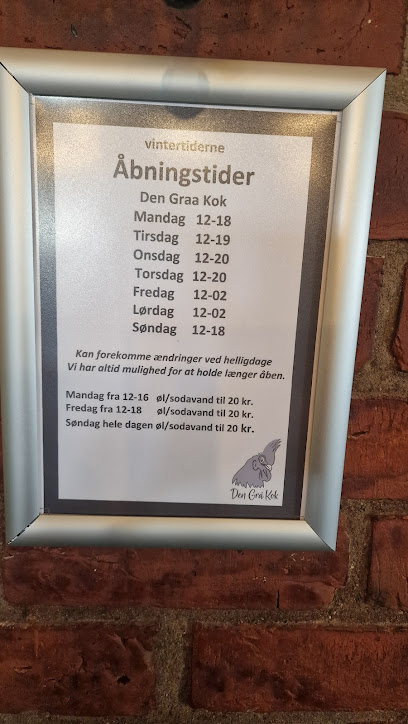
Olivia
Casual Danish beer hall where locals gather for drinks, conversation, and authentic small-town hospitality.
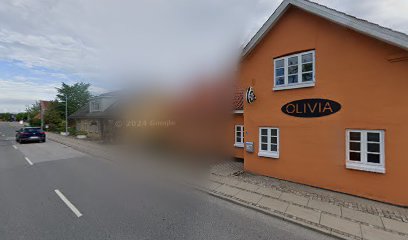
Madam Blå's Vandhul
A cozy, day‑time neighborhood bar-café in Hobro where locals linger over coffee, beer and small talk in an easygoing, homely atmosphere.
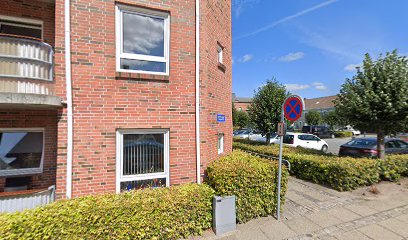
ar
Easygoing waterfront bar on Ved Stranden in Hadsund, pairing unfussy drinks with relaxed fjord views and a cosy neighbourhood atmosphere.

Local Phrases about Mariager Fjord
-
- HelloHej
[hey] - GoodbyeFarvel
[far-vel] - YesJa
[ya] - NoNej
[nay] - Please/You're welcomeVær så god
[ver so good] - Thank youTak
[tak] - Excuse me/SorryUndskyld
[un-skyld] - How are you?Hvordan har du det?
[voor-dan har doo day] - Fine. And you?Godt. Og du?
[goht. oh doo] - Do you speak English?Taler du engelsk?
[ta-ler doo en-gelsk] - I don't understandJeg forstår ikke
[yay for-stor eek-eh]
- HelloHej
-
- I'd like to see the menu, pleaseJeg vil gerne se menuen, tak
[yay vil geh-neh say meh-new-en tak] - I don't eat meatJeg spiser ikke kød
[yay spee-ser ee-keh kud] - Cheers!Skål!
[skol] - I would like to pay, pleaseJeg vil gerne betale, tak
[yay vil geh-neh beh-ta-le tak]
- I'd like to see the menu, pleaseJeg vil gerne se menuen, tak
-
- Help!Hjælp!
[yelp] - Go away!Gå væk!
[goh ve-ehk] - Call the Police!Ring til politiet!
[ring teel po-li-tee-et] - Call a doctor!Ring til en læge!
[ring teel en lay-eh] - I'm lostJeg er faret vild
[yay er far-et veeld] - I'm illJeg er syg
[yay er sook]
- Help!Hjælp!
-
- I'd like to buy...Jeg vil gerne købe...
[yay vil geh-neh keu-beh] - I'm just lookingJeg kigger bare
[yay kee-ger bah-reh] - How much is it?Hvor meget koster det?
[vor meh-et kus-ter deh] - That's too expensiveDet er for dyrt
[deh er for deurt] - Can you lower the price?Kan du sænke prisen?
[kan doo sain-keh pree-sen]
- I'd like to buy...Jeg vil gerne købe...
-
- What time is it?Hvad er klokken?
[vad er klok-en] - It's one o'clockKlokken er et
[klok-en er et] - Half past (10)Halv ti
[halv tee] - MorningMorgen
[mor-gen] - AfternoonEftermiddag
[ef-ter-mee-dag] - EveningAften
[af-ten] - YesterdayI går
[ee gor] - TodayI dag
[ee day] - TomorrowI morgen
[ee mor-gen] - 1En
[en] - 2To
[toh] - 3Tre
[treh] - 4Fire
[fee-reh] - 5Fem
[fem] - 6Seks
[seks] - 7Syv
[suv] - 8Otte
[o-teh] - 9Ni
[nee] - 10Ti
[tee]
- What time is it?Hvad er klokken?
-
- Where's a/the...?Hvor er...
[vor er] - What's the address?Hvad er adressen?
[vad er a-dres-sen] - Can you show me (on the map)?Kan du vise mig (på kortet)?
[kan doo vee-seh meeh (poh kor-teh)] - When's the next (bus)?Hvornår er næste (bus)?
[vor-nor er nes-teh bus] - A ticket (to ....)En billet (til ....)
[en bee-leht (teel)]
- Where's a/the...?Hvor er...
History of Mariager Fjord
-
Mariager Fjord has a rich Viking history, with evidence of early settlements dating back to the Viking Age (circa 800-1050 AD). The fjord's navigable waters made it a strategic location for Viking longships, aiding in trade and exploration. Archaeological finds, such as burial mounds and runestones, highlight the significance of this area in Viking culture and society.
-
In 1430, Mariager Abbey was founded by Bridgettine nuns. The abbey became a center of religious life and education in the region, influencing the surrounding communities. Despite the Reformation in the 16th century, which led to its dissolution, the abbey's legacy endures, with its ruins and preserved artifacts offering a glimpse into medieval monastic life.
-
Established in the 15th century, the town of Mariager grew around the abbey and became an important market town. Its cobblestone streets and well-preserved half-timbered houses reflect its historical charm. Mariager's strategic position along the fjord facilitated trade and communication, playing a crucial role in the town's economic development.
-
The 19th century brought industrial advancements to Mariager Fjord, notably in salt production. The Mariager Salt Center, established in the 1990s, showcases the historical and cultural significance of salt extraction in the area. Visitors can learn about traditional salt-making techniques and the fjord’s role in Denmark’s industrial history.
-
During World War II, Mariager Fjord and its surrounding areas were significant in the Danish Resistance Movement. The fjord's remote locations provided safe havens for resistance fighters and facilitated clandestine operations against German occupiers. Memorials and museums in the region honor the bravery and sacrifices of those involved in the resistance efforts.
-
In recent decades, Mariager Fjord has become a focal point for conservation efforts. The fjord's diverse ecosystems, including its unique brackish waters, support a wide range of flora and fauna. Protected areas and nature reserves have been established to preserve this natural heritage, making the fjord a popular destination for eco-tourism and outdoor activities.
Mariager Fjord Essentials
-
Mariager Fjord is located in the Jutland region of Denmark. The nearest major airport is Aalborg Airport, which is approximately 60 kilometers north of Mariager. From the airport, you can rent a car, take a taxi, or use public transportation to reach the fjord. Trains and buses connect Mariager to major cities like Aarhus and Aalborg, with regular services making it convenient to travel by public transport.
-
Mariager Fjord and its surrounding areas are best explored by car, allowing you to visit small villages and scenic spots at your own pace. Public buses operate within the region, connecting larger towns and tourist attractions. Biking is also a popular option, with many well-marked bike paths offering picturesque routes along the fjord. Taxis are available but can be costly for longer distances.
-
The official currency in Denmark is the Danish Krone (DKK). Credit and debit cards are widely accepted in most hotels, restaurants, and shops. However, it is advisable to carry some cash for small purchases, especially in rural areas. ATMs are available in most towns around Mariager Fjord, making it easy to withdraw cash if needed.
-
Mariager Fjord is generally a very safe destination for tourists. Crime rates are low, and incidents targeting tourists are rare. However, it is always wise to take standard precautions such as avoiding poorly lit areas at night and keeping an eye on your belongings, especially in crowded places. There are no specific high-crime areas in the region.
-
In case of emergency, dial 112 for immediate assistance. This number connects you to police, fire, and medical services. The region has several medical facilities and pharmacies where you can get help for minor health issues. It is recommended to have travel insurance that covers medical emergencies. The local police stations are approachable and can assist in case of any issues.
-
Fashion: Do dress in layers, as weather can change quickly. Casual and comfortable clothing is generally acceptable. Avoid overly revealing clothing when visiting religious sites. Religion: Do respect the local customs and traditions, especially when visiting churches and historical sites. Public Transport: Do be polite and offer your seat to elderly passengers. Don’t make excessive noise or eat and drink on public transport. Greetings: Do greet people with a handshake and maintain eye contact. It’s considered polite to say 'Hej' (Hi) or 'Goddag' (Good day). Eating & Drinking: Do try local dishes and seafood, which are specialties of the region. Don’t forget to say 'Tak' (Thank you) when served.
-
To experience Mariager Fjord like a local, consider visiting the small, picturesque villages such as Hobro and Hadsund. Engage with locals at farmers' markets and small cafes where you can taste regional specialties. Don't miss the Mariager Salt Centre, an interactive museum dedicated to the history and production of salt. For outdoor enthusiasts, kayaking on the fjord is a must-try activity, offering a unique perspective of the natural beauty.
Nearby Cities to Mariager Fjord
-
Things To Do in Aalborg
-
Things To Do in Viborg
-
Things To Do in Aarhus
-
Things To Do in Silkeborg
-
Things To Do in Herning
-
Things To Do in Horsens
-
Things To Do in Frederikshavn
-
Things To Do in Vejle
-
Things To Do in Skagen
-
Things To Do in Kalundborg
-
Things To Do in Kolding
-
Things To Do in Odense
-
Things To Do in Nyborg
-
Things To Do in Esbjerg
-
Things To Do in Slagelse









